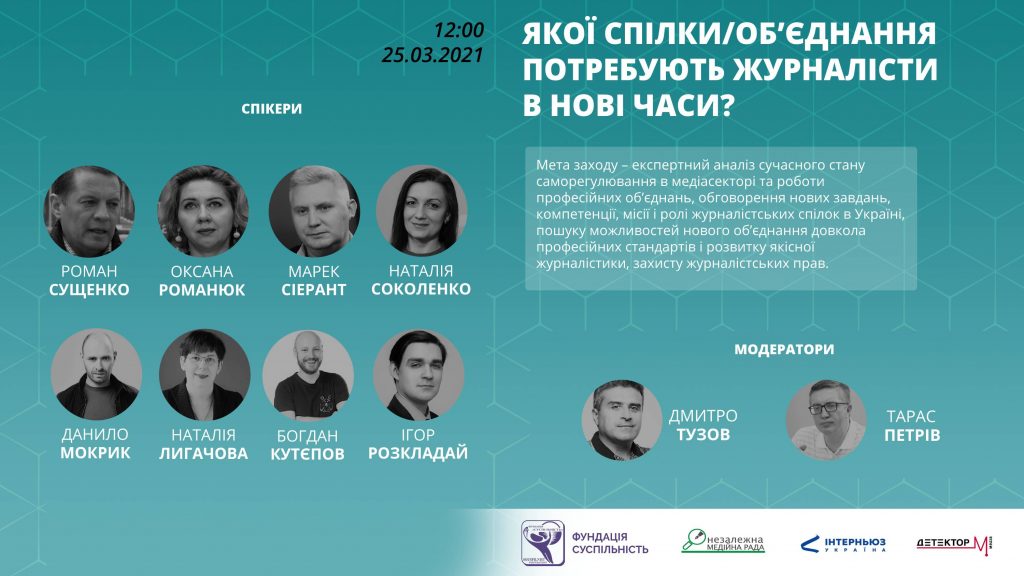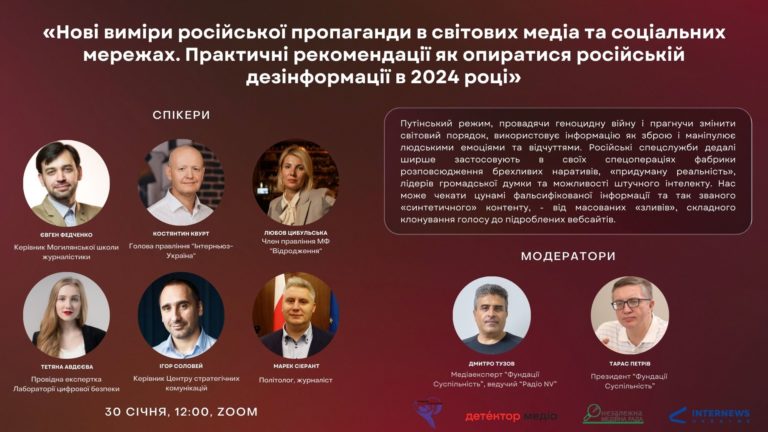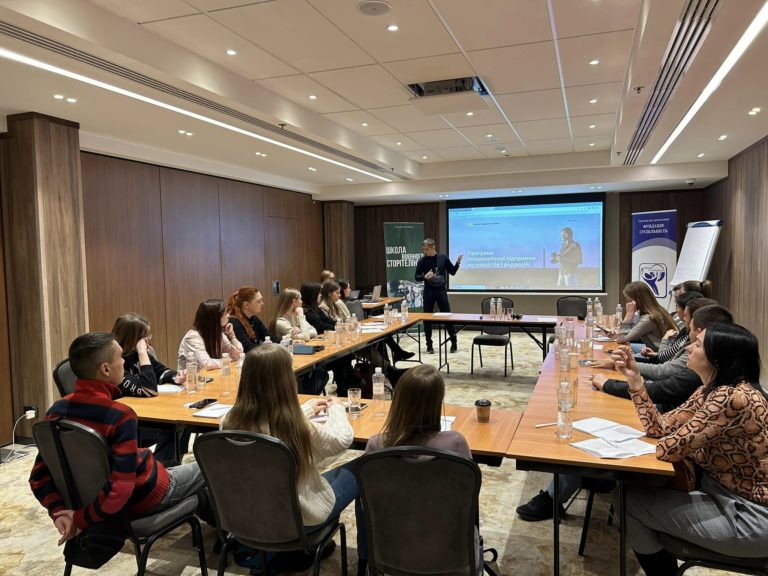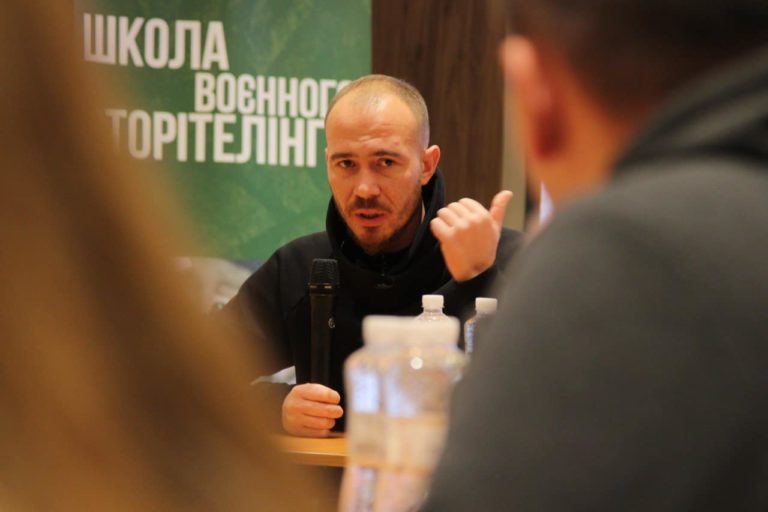On March 25, Souspilnist Foundation with the support of Internews Ukraine, Detector Media and the Independent Media Council, held the online expert discussion “What kind of union/association do journalists need in new times?”
The discussion was attended by Roman Sushchenko, a Ukrainian journalist and former political prisoner, Oksana Romaniuk, executive director at the Institute of Mass Information, Marek Sierant, a well-known Polish journalist, Nataliia Sokolenko, journalist and Ukrainian Radio host, Danylo Mokryk, investigative journalist at the Bihus.info project, Bohdan Kutiepov, journalist at Hromadske TV, Oleksiy Pohorielov, president of the Ukrainian Media Business Association, Olha Hresko, lecturer at the Institute of Journalism of the Taras Shevchenko National University of Kyiv. Moderating the event were Dmytro Tuzov, journalist and NV radio host, and Taras Petriv, president of Souspilnist Foundation.
The event aimed at providing expert analysis of the current state of self-regulation in the media sector and the work of professional associations, discussing new tasks, competencies, mission and role of journalists’ unions in Ukraine, searching for new possibilities to unite around professional standards, promoting quality journalism, and protecting the rights of journalists.

At the beginning of the discussion, Roman Sushchenko noted the importance of being united and standing in solidarity for the journalistic community. When the expert was unlawfully confined in prison in Russia, he felt powerful solidarity on the part of his colleagues in Ukraine and abroad who provided support on a media and personal level.
“We know that many bloggers, journalists (the most recent example is Vladyslav Yesypenko, a freelancer at Radio Liberty, arrested in Crimea) are still kept imprisoned. The aggressor’s repression machine keeps on working, and so it’s very important that we unite around this support”, noted Sushchenko.
Oksana Romaniuk noted that she sees three areas where journalists can unite today:
- number one is in sync with the position expressed by Sushchenko – it is the protection of the rights of journalists (in particular, in the regions);
- developing journalistic ethics, journalistic standards, a culture of transparency;
- developing and supporting self-regulation and labor rights.
According to Nataliia Sokolenko, it is important to understand that Ukraine still lacks a culture of trade unions like, for example, in the USA, and its media development model lacks the judicial system and public prosecution service part, whose transparent work is important for ensuring the rights of journalists.
“We won’t be able to copy a foreign trade union’s experience. We should try new methods to build a journalists’ network”, noted the expert.
Among the possible ways of supporting journalists, Nataliia Sokolenko mentioned mutual personal recommendations on the channels that have the trust of their audience.
Danylo Mokryk voiced an opinion that one should understand for what and around what one could create a journalists’ union in the first place. Oleksiy Pohorielov added that, first of all, a union should be effective. The expert noted that an effective union is a place where people’s needs are met. The needs are different and so they should be classified. In Pohorielov’s opinion, umbrella organizations are untimely.
To know what is timely, in what way self-regulation can develop in the Ukrainian media sector, other countries’ experience and the day-to-day realities in Ukraine – watch the video:
Follow the news on Souspilnist Foundation’s website and Facebook page to learn about the new events for media professionals.


